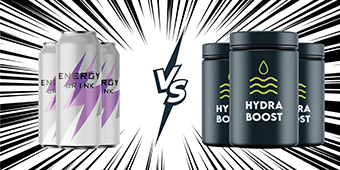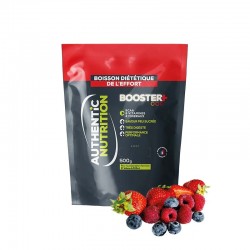Stimulants such as caffeine, taurine, D-glucuronolactone (a form of sugar), plant extracts (ginseng, guarana, mate) are present in energy drinks but not in energy drinks.
In addition to their stimulant effects, some of these substances, such as caffeine, consumed in excessive quantities, can cause numerous adverse effects: anxiety, tachycardia, sleep disorders, etc.
According to ANSES (1), due to the diuretic effect of caffeine, energy drinks increase the loss of water and mineral salts and increase the risk of heat stroke.






